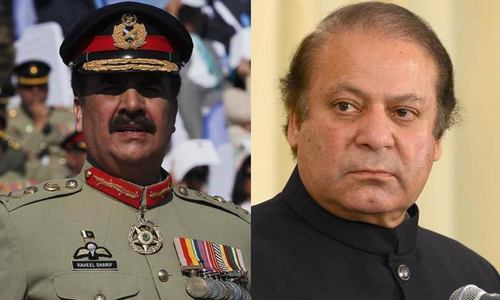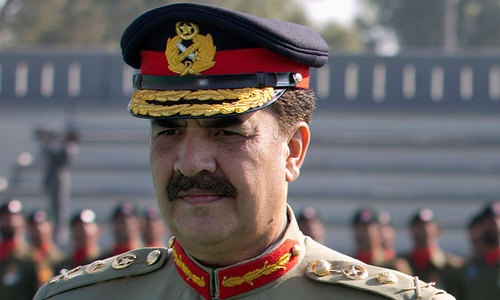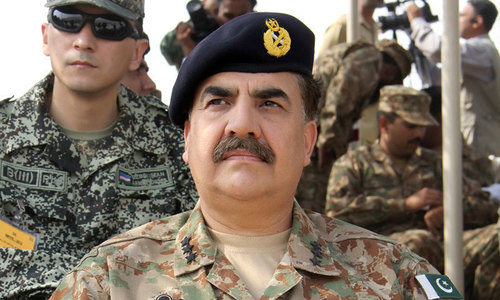ISLAMABAD: Chief of Army Staff General Raheel Sharif will visit the US from Sunday, a trip analysts say will underscore security issues facing Islamabad and Washington in the region as well as the imbalance in civilian-military power in Pakistan.
The November 15-20 visit — apparently instigated by General Raheel Sharif — comes weeks after Prime Minister Nawaz Sharif met with US President Barack Obama at the Oval Office to discuss many of the same issues said to be on his army chief's agenda, including Afghan peace talks and Pakistan's nuclear ambitions.
Analysts said General Raheel’s influence over both issues makes him, rather than the civilian leadership, the dominant broker for Washington's regional agenda.
The Americans “know where the power is”, Pakistani defence and security analyst Talat Masood told AFP. However that is likely to make the visit “a bit trickier” for Sharif as he tries to balance Washington's demands, particularly in Afghanistan, said analyst Zahid Hussain.
Stability in Pakistan's neighbour Afghanistan has spiralled after a Taliban surge in recent months, and Obama announced in October that Washington will keep thousands of soldiers in the country past 2016.
Pakistan has been historically close to the Taliban and Washington sees Islamabad as one of its few partners with the influence to bring the militants to the negotiating table. The new Taliban leader Mullah Akhtar Mansour is believed to have close ties to Pakistan.
General Raheel will also hold detailed discussions with US defence officials about the militant Haqqani network, which comes under the umbrella of the Taliban and has been described by US officials in the past as a “veritable arm” of Pakistani intelligence, a security official said.
Some in Washington believe Pakistan has not done enough to bring its influence to bear and to persuade the group to renounce violence, and during Prime Minister Nawaz’s trip in October Obama stressed that Pakistan needed to take action against groups that undermine peaceful dialogue.
The pressure has increased since an initial round of peace talks was broken off this summer when the death of long-time Taliban leader Mullah Omar was announced.
Prime Minister Nawaz agreed last month to help Afghanistan re-start the talks, but Washington's concerns over the collapse of negotiations are “casting a shadow over the general's coming visit”, Hussain wrote this week.
Masood, a retired lieutenant general, noted the unusual circumstances surrounding the trip.
“It's not that the Americans have invited him but he has invited himself,” he said, adding that it would be General Raheel’s second visit this year.
“Normally this doesn't happen.”
It signals the “importance of the problems that both countries seem to be facing in the region and especially because of the Afghan situation”, he said.
By military only
A military statement issued this week said that General Raheel will use the US trip to “clearly highlight Pakistan's perspective of new emerging regional realities”, in what some saw as implied criticism of the failure of Prime Minister Nawaz’s government to take long-term steps to tackle extremism.
But other sources downplayed the significance of the question over who instigated the visit, with one security official saying all that matters is that the discussions are taking place, “even if we have proposed these meetings”.
Issues such as Pakistan's nuclear weapons are being handled “by the military only”, he said, so it was natural for the army to want to talk to its US counterparts.
“Our political leaders are not even aware of the strength of our nuclear weapons... They are also unaware of military needs and other operational details,” he said.
“We understand that international powers and India have concerns about our short range smaller nuclear warhead weapons,” a second security official said, adding that the US is expected to raise the issue with General Raheel.
The general will argue that Pakistan must maintain its nuclear capability to combat the threat from India, he said.
















































